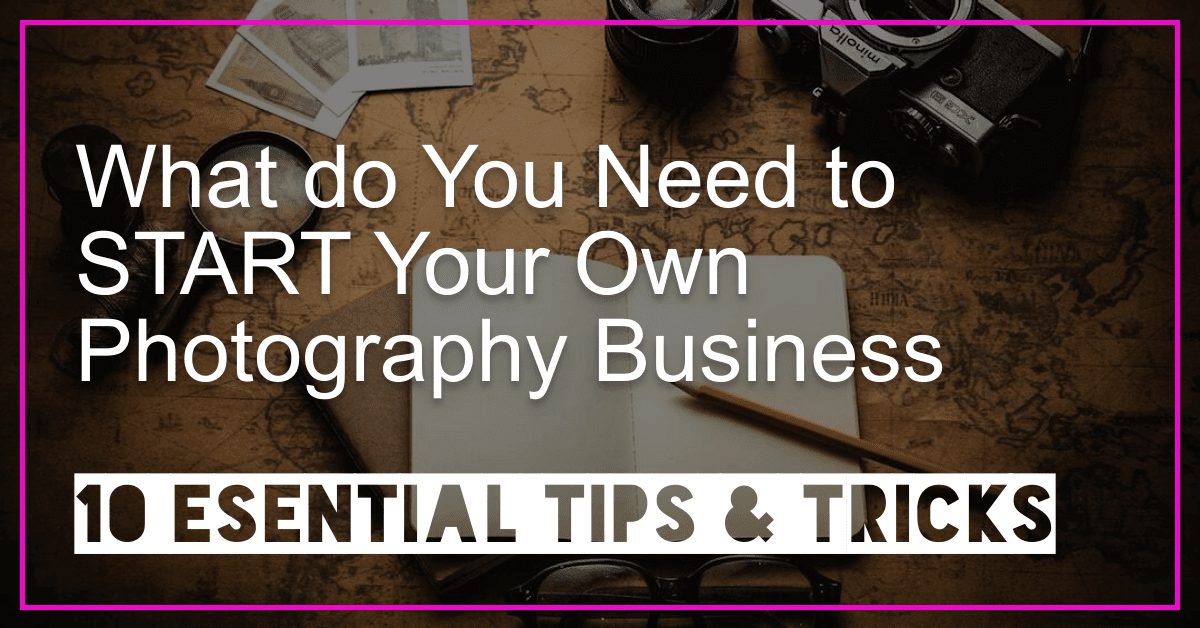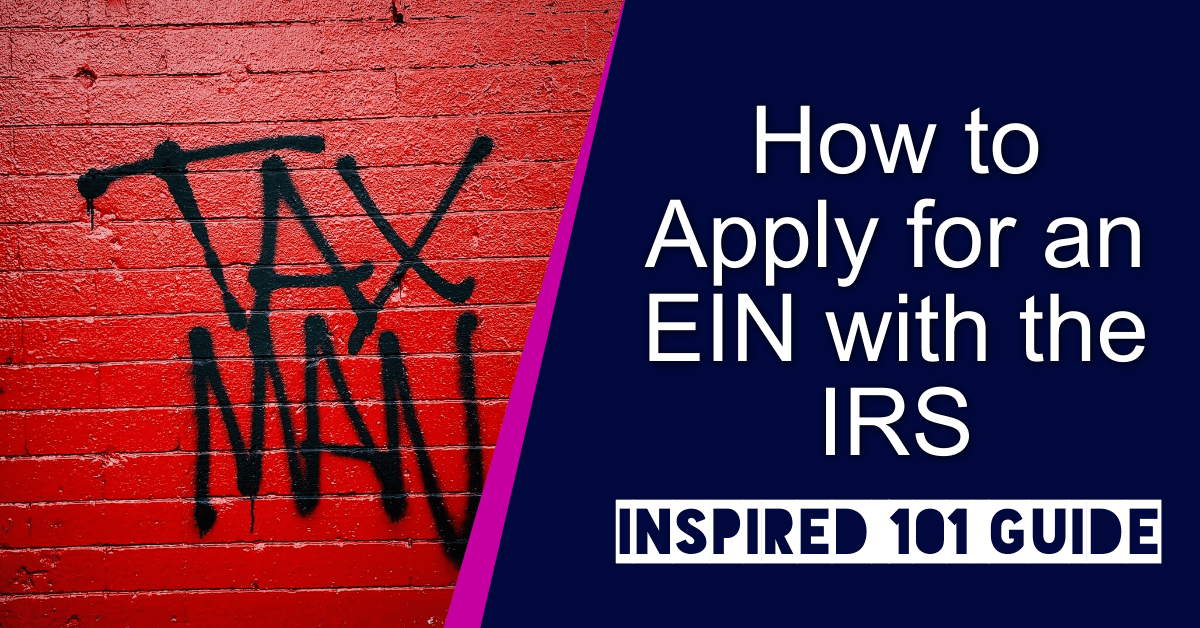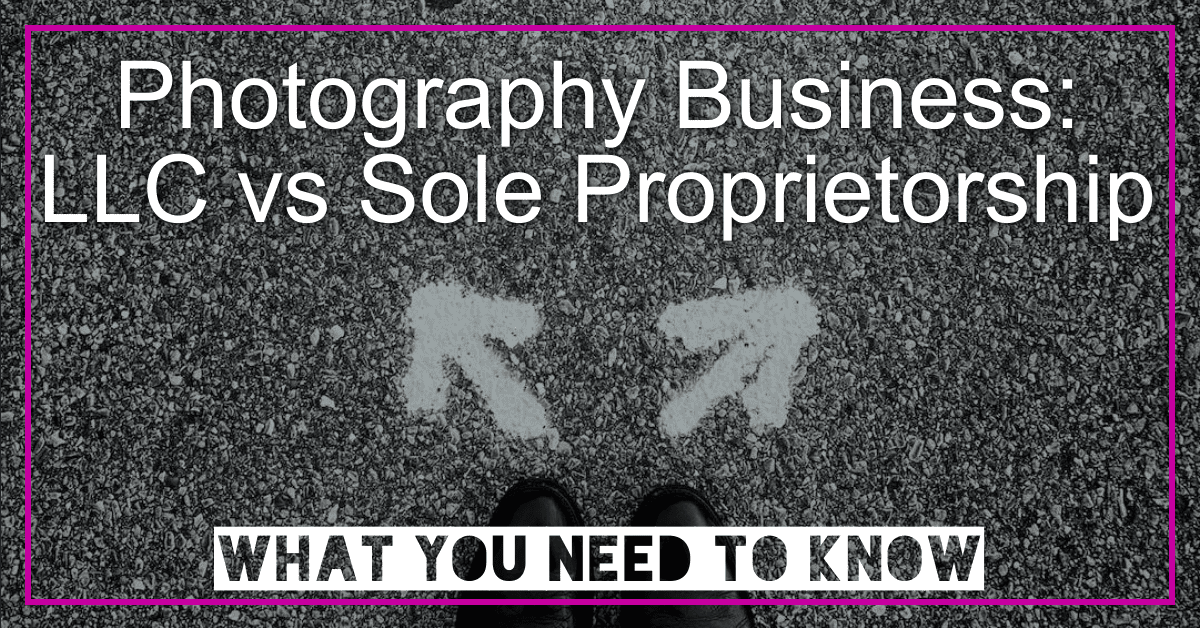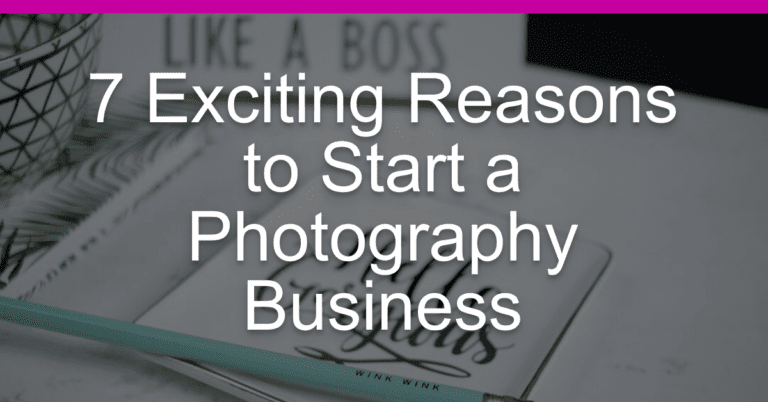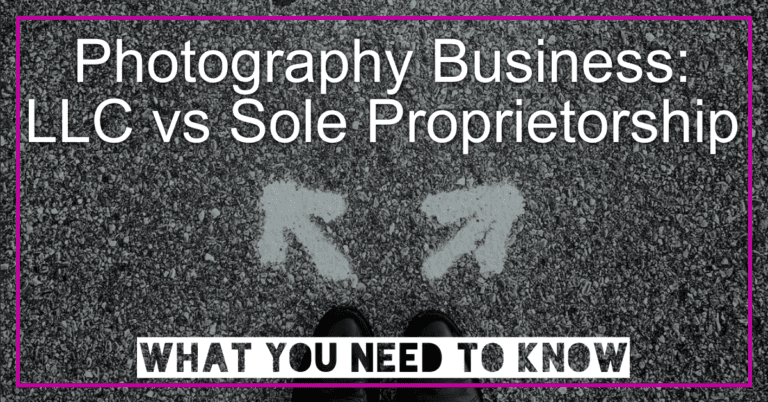What do you need to start your own photography business? Have this been a question you asked yourself a couple times? Starting your own photography business can be an exciting and rewarding venture. It allows you to turn your passion for photography into a career and work on your own terms.
However, starting any business requires careful planning and preparation, and the photography industry is no exception. In this article, we’ll explore the key things you need to start your own photography business.
Table of Contents
1. Photography Equipment
The first thing answering the question: What do you need to start your own photography business is photography equipment. This includes a camera, lenses, memory cards, a tripod, lighting equipment, and a computer with photo editing software.
It’s important to invest in high-quality equipment that will produce professional-grade images. This will not only impress your clients but also help you stand out in a competitive industry.
When it comes to choosing a camera, there are many options available, from entry-level DSLRs to high-end mirrorless cameras. The key is to choose a camera that suits your style of photography and budget.
For lenses, you’ll need a variety of focal lengths to cover different shooting scenarios. A standard zoom lens, such as a 24-70mm f/2.8, is a good place to start, but you may also want to invest in prime lenses for portraits or telephoto lenses for wildlife or sports photography.
Memory cards are essential for storing your images, and it’s a good idea to have several backups in case of card failure. A tripod is useful for stabilizing your camera and achieving sharp images, especially in low light.
Lighting equipment, such as strobes or continuous lights, can help you control the lighting in your images and create a professional look. Finally, a computer with photo editing software, such as Adobe Lightroom or Photoshop, is necessary for processing and retouching your images.
2. Business Plan
Once you have your photography equipment, the next thing you need to start your own photography business is a business plan. A business plan outlines your goals, target market, marketing strategies, and financial projections. It’s a roadmap that will guide you through the early stages of your business and help you stay on track.
Your business plan should include a clear definition of your target market. Who are your ideal clients? What type of photography do you specialize in? What sets you apart from your competition?
Once you have a clear understanding of your target market, you can develop marketing strategies to reach them. This may include social media marketing, email marketing, or paid advertising.
Your business plan should also include financial projections. This will help you determine how much money you need to invest in your business and when you can expect to start making a profit.
You’ll need to consider your expenses, such as equipment, rent, insurance, and marketing costs, as well as your pricing strategy and sales goals.
3. Legal Requirements
Involving legal requirements is an essential aspect when looking at the question “What do you need to start your own photography business”. This includes registering your business, obtaining any necessary licenses and permits, and protecting your intellectual property.
Depending on where you live, you may need to register your business with the government. This will typically involve obtaining a business license and registering for taxes. You’ll also need to comply with any local zoning laws and regulations.
Depending on the type of photography you specialize in, you may need additional licenses and permits. For example, if you plan to photograph weddings, you may need a permit to operate in certain venues or public spaces.
Protecting your intellectual property is also important in the photography industry. This includes registering your copyright and trademark, as well as protecting your images from unauthorized use. It’s a good idea to consult with an attorney who specializes in intellectual property to ensure that you’re fully protected.
4. Portfolio and Website
A strong portfolio and website are essential for starting a photography business. Your portfolio showcases your best work and demonstrates your skills to potential clients. Your website serves as a digital
portfolio and a hub for your online presence. It’s important to invest time and effort into building a professional and visually appealing website that showcases your work and makes it easy for potential clients to contact you.
Your portfolio should showcase your best work and demonstrate your skills in your chosen niche. For example, if you specialize in wedding photography, your portfolio should include a range of images from different weddings, showcasing your ability to capture the emotion and beauty of the day.
If you specialize in landscape photography, your portfolio should showcase a variety of landscapes, demonstrating your ability to capture the natural beauty of different locations.
Your website should be easy to navigate, visually appealing, and optimized for search engines. This means using relevant keywords in your content, including high-quality images with appropriate alt tags, and ensuring that your website is mobile-friendly.
Your website should also include a clear call-to-action, such as a contact form or phone number, to make it easy for potential clients to get in touch with you.
5. Networking and Marketing
Networking and marketing are essential for growing your photography business. This involves building relationships with potential clients, other photographers, and industry professionals. It also involves promoting your business through various channels, such as social media, email marketing, and advertising.
Networking can take many forms, from attending industry events and conferences to joining online photography communities. The key is to build relationships with potential clients and industry professionals who can help promote your business and refer you to others.
Marketing is also important for growing your business. This includes promoting your business through social media platforms such as Instagram and Facebook, as well as through email marketing campaigns and paid advertising. It’s important to develop a marketing strategy that aligns with your target market and business goals. Marketing really does influence when answering the question “What do you need to start your own photography business”.
6. Insurance
Insurance is another important consideration when starting a photography business. This includes liability insurance, which protects you in the event that you’re sued for injury or property damage, as well as equipment insurance, which covers your photography equipment in the event of theft, damage, or loss.
Liability insurance is important because it protects you from financial ruin in the event of a lawsuit. For example, if a client trips over your tripod and is injured, liability insurance will cover the cost of any damages or medical expenses.
Equipment insurance is important because it covers the cost of repairing or replacing your photography equipment in the event of theft, damage, or loss. This is especially important for photographers who rely on expensive equipment to make a living.
7. Pricing and Contracts
Finally, pricing and contracts are important considerations when starting a photography business. You’ll need to determine your pricing strategy based on your expenses, target market, and competition. This may involve charging by the hour, by the project, or by the image.
Contracts are also important because they protect you and your clients in the event of a dispute. Your contract should outline the scope of the project, the deliverables, the payment terms, and any other relevant details. It’s important to consult with an attorney to ensure that your contract is legally binding and protects your interests.
In conclusion, starting your own photography business requires careful planning and preparation. You’ll need high-quality equipment, a business plan, legal compliance, a strong portfolio and website, networking and marketing skills, insurance, and pricing and contract strategies. By following these key steps, you can turn your passion for photography into a successful and rewarding career.
8. Additional Tips: What Do You Need to Start Your Own Photography Business
Starting your own photography business can be challenging, but it can also be incredibly rewarding. Here are some additional tips to help you succeed:
Specialize in a Niche
One way to stand out in a crowded market is to specialize in a niche. This could include wedding photography, newborn photography, pet photography, or any other area that interests you. Specializing in a niche allows you to develop a specific set of skills and become known as an expert in your field.
Invest in Education and Training
The photography industry is constantly evolving, so it’s important to invest in education and training to stay up-to-date with the latest trends and techniques. This could include attending workshops and conferences, taking online courses, or working with a mentor.
Build Relationships with Clients
Building relationships with your clients is key to building a successful photography business. This involves listening to their needs and preferences, communicating clearly and professionally, and providing exceptional customer service.
Develop a Unique Style
Developing a unique style can help you stand out from other photographers and attract clients who appreciate your creative vision. This could involve experimenting with different techniques, developing a signature editing style, or focusing on a specific type of subject matter.
Stay Organized and Efficient
Running a successful photography business requires a lot of behind-the-scenes work, including scheduling shoots, managing finances, and editing photos. It’s important to stay organized and efficient to ensure that your business runs smoothly and you have time to focus on your creative work.
Final Thoughts
Starting your own photography business can be a challenging and rewarding journey. By following these key steps and tips, you can build a successful and sustainable photography business that allows you to do what you love and make a living doing it.
Remember to stay focused on your goals, be patient and persistent, and always strive to improve your skills and grow your business. With hard work, dedication, and a passion for photography, you can create a successful business that allows you to pursue your dreams and live life on your own terms.
9. SEO Optimization Tips for Your Photography Business
Now that we’ve discussed the key steps and tips on answering What do you need to start your own photography business, let’s talk about how to optimize your website and content for search engines. Here are some SEO optimization tips to help you rank higher on Google and attract more potential clients to your website:
Use Relevant Keywords
Keywords are the words and phrases that people type into search engines when looking for information or services. By including relevant keywords in your website content, meta descriptions, and image alt tags, you can improve your website’s visibility and attract more organic traffic.
For example, if you specialize in wedding photography, you might include keywords such as “wedding photography,” “wedding photographer,” “bridal portraits,” and “engagement photos” in your website content and meta descriptions.
Create High-Quality Content
High-quality, informative, and engaging content can help establish you as an authority in your field and attract more potential clients to your website. This could include blog posts, articles, tutorials, and guides that provide value to your audience and demonstrate your expertise.
When creating content, be sure to use relevant keywords and incorporate visual elements such as images and videos to make it more engaging and shareable.
Optimize Your Website Design
A well-designed website that is easy to navigate and optimized for mobile devices can improve your user experience and encourage visitors to spend more time on your site. This, in turn, can improve your search engine rankings and attract more potential clients.
Be sure to use a responsive design that adjusts to different screen sizes, use clear and concise navigation, and optimize your website speed and performance.
Build Backlinks
Backlinks are links from other websites that point to your website. They are an important factor in Google’s search algorithm and can help improve your website’s authority and search engine rankings.
To build backlinks, consider reaching out to other websites in your industry and asking them to link to your website. You can also create high-quality, shareable content that others may naturally link to.
Use Local SEO
If you are targeting clients in a specific geographic location, be sure to use local SEO strategies to improve your visibility in local search results. This could include optimizing your Google My Business listing, including location-specific keywords in your content, and using local directories and review sites.
By using these SEO optimization tips, you can improve your website’s visibility and attract more potential clients to your photography business. Remember to focus on creating high-quality content, using relevant keywords, optimizing your website design, building backlinks, and using local SEO strategies to maximize your online presence and attract the right clients for your business.
10. Marketing Strategies for Your Photography Business
In addition to SEO optimization, there are a variety of marketing strategies that can help you promote your photography business and attract more clients. Here are some marketing strategies to consider when answering What do you need to start your own photography business
Social Media Marketing
Social media is a powerful tool for promoting your photography business and reaching a wider audience. Platforms such as Instagram, Facebook, and Pinterest allow you to showcase your work, engage with potential clients, and build relationships with your audience.
To be successful on social media, be sure to post high-quality images and videos, use relevant hashtags, engage with your followers, and collaborate with other businesses and influencers in your industry.
Email Marketing
Email marketing is a cost-effective way to stay in touch with your clients and promote your photography services. By building an email list and sending regular newsletters and promotions, you can keep your clients informed about your latest work, special offers, and upcoming events.
To build an effective email list, offer a free guide, tutorial, or consultation in exchange for their email address. Be sure to personalize your emails, segment your list based on their interests and preferences, and provide valuable content that your audience will appreciate.
Networking and Collaboration
Networking and collaboration can help you build relationships with other professionals in your industry and attract new clients. Consider attending networking events, joining local photography groups, and collaborating with other businesses and influencers in your field.
When networking and collaborating, be sure to be genuine, provide value, and seek out mutually beneficial relationships that can help you grow your business.
Referral Marketing
Referral marketing is a powerful way to attract new clients and grow your photography business. By providing exceptional customer service and delivering high-quality work, you can encourage your clients to refer their friends and family to your business.
To incentivize referrals, consider offering a discount, free session, or other rewards to clients who refer new business to you.
Paid Advertising
Paid advertising can be an effective way to reach a wider audience and attract more clients to your photography business. Platforms such as Google Ads, Facebook Ads, and Instagram Ads allow you to target specific demographics, interests, and behaviors to reach potential clients who are most likely to be interested in your services.
When using paid advertising, be sure to create high-quality ads, use relevant keywords and targeting options, and track your results to optimize your campaigns over time.
By using these marketing strategies, you can promote your photography business, attract more clients, and grow your brand over time. Remember to focus on building relationships with your audience, providing value, and creating a unique brand that sets you apart from other photographers in your field.
Conclusion
Starting a photography business can be a rewarding and fulfilling career path for those who are passionate about photography and entrepreneurship. Whether you are just starting out or looking to grow your existing business, there are a variety of steps, tips, and strategies that can help you succeed in this competitive industry.
To recap, here are some of the key steps and tips answering what do you need to start your own photography business:
- Define your niche and target audience
- Invest in quality equipment and software
- Establish your business structure and legal requirements
- Create a strong brand and marketing strategy
- Develop a portfolio and online presence
- Price your services competitively
- Deliver exceptional customer service and high-quality work
In addition to these steps, be sure to prioritize your own personal growth and education. Attend workshops and conferences, connect with other professionals in your industry, and continue to develop your skills and expertise to stay ahead of the curve.
Remember, starting a photography business takes time, effort, and dedication, but with the right strategies and mindset, you can build a successful and rewarding career in this dynamic and exciting field.


Gideon van Niekerk
Photographer & Blogger
Transform Your Passion for Photography into a Thriving Career! As a professional photographer with over a decade of experience, I share the secrets of building a successful photography business on my blog. Unlock the Secrets to Starting a Profitable Photography Business Today! Join me on an incredible journey of discovery, where you’ll learn insider tips and tricks to building a successful photography empire. Don’t miss out on this exciting opportunity to turn your passion into profit – let’s embark on this journey together!


